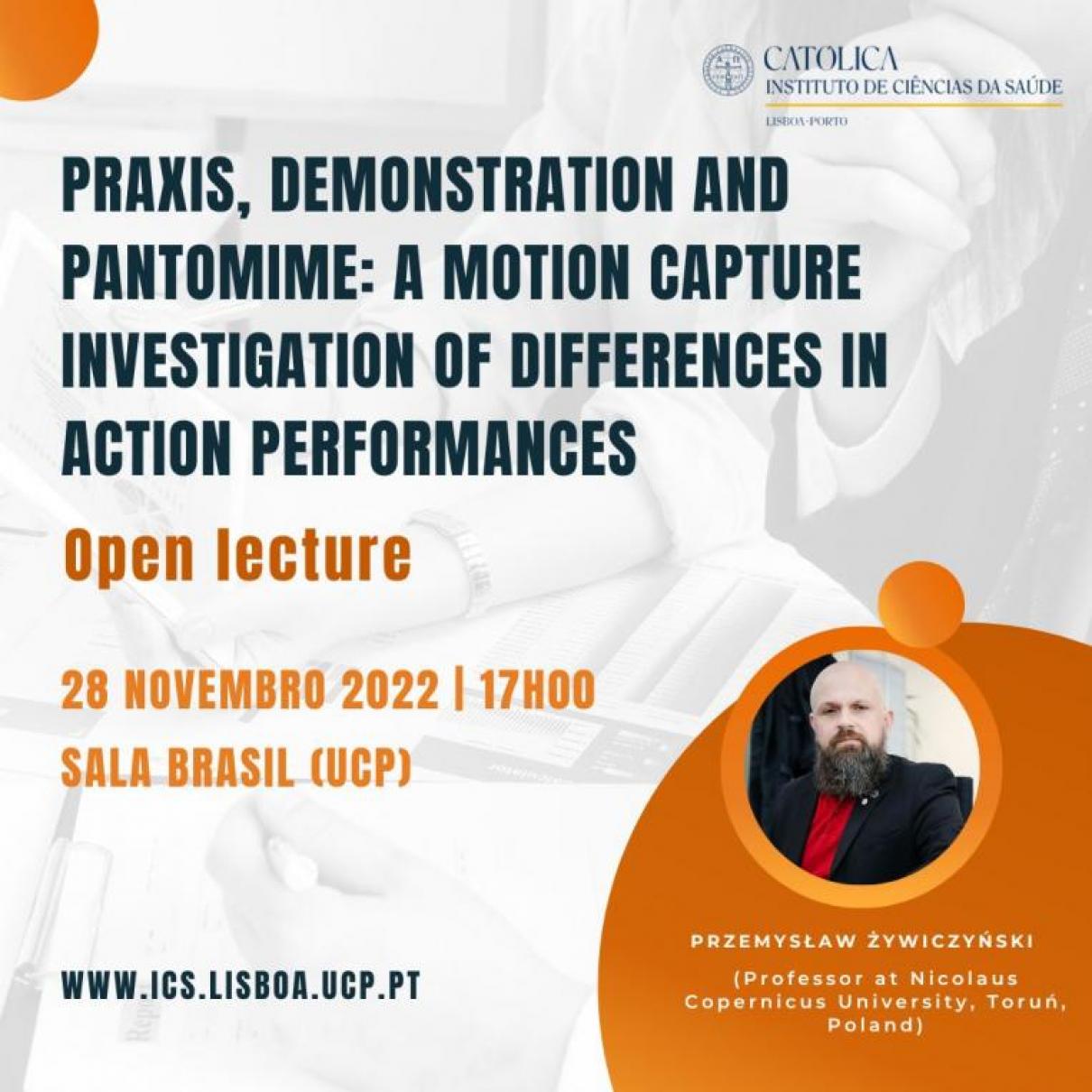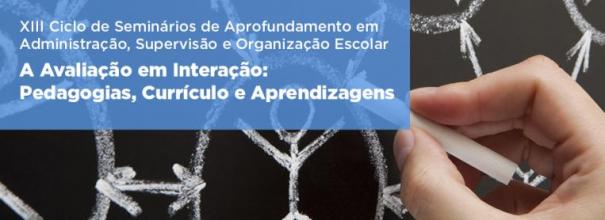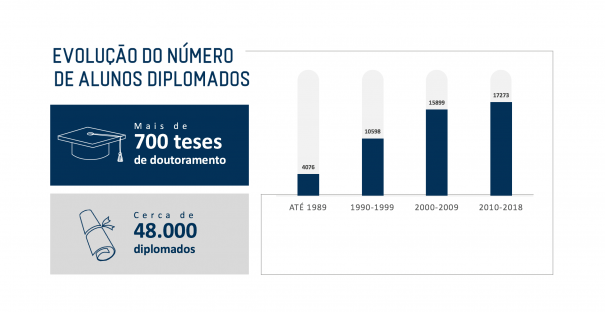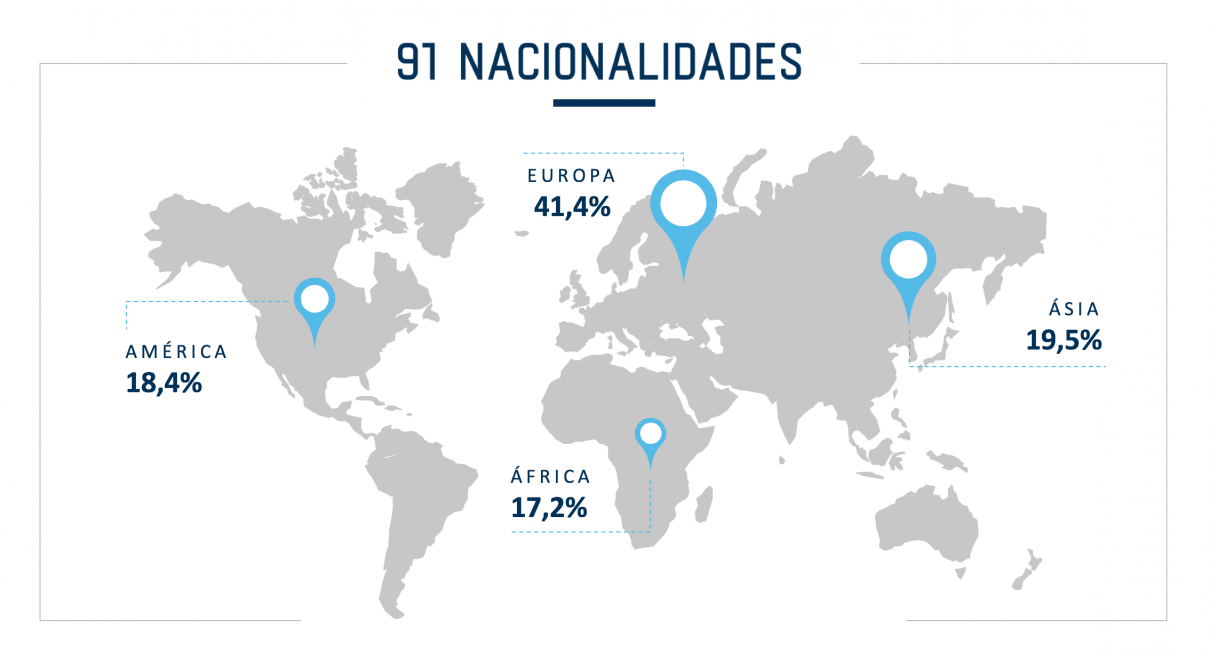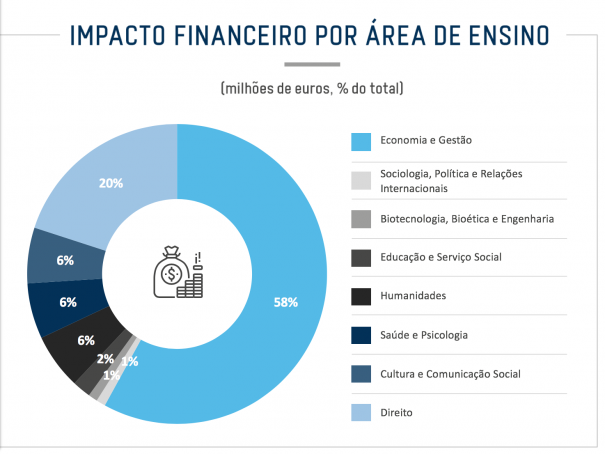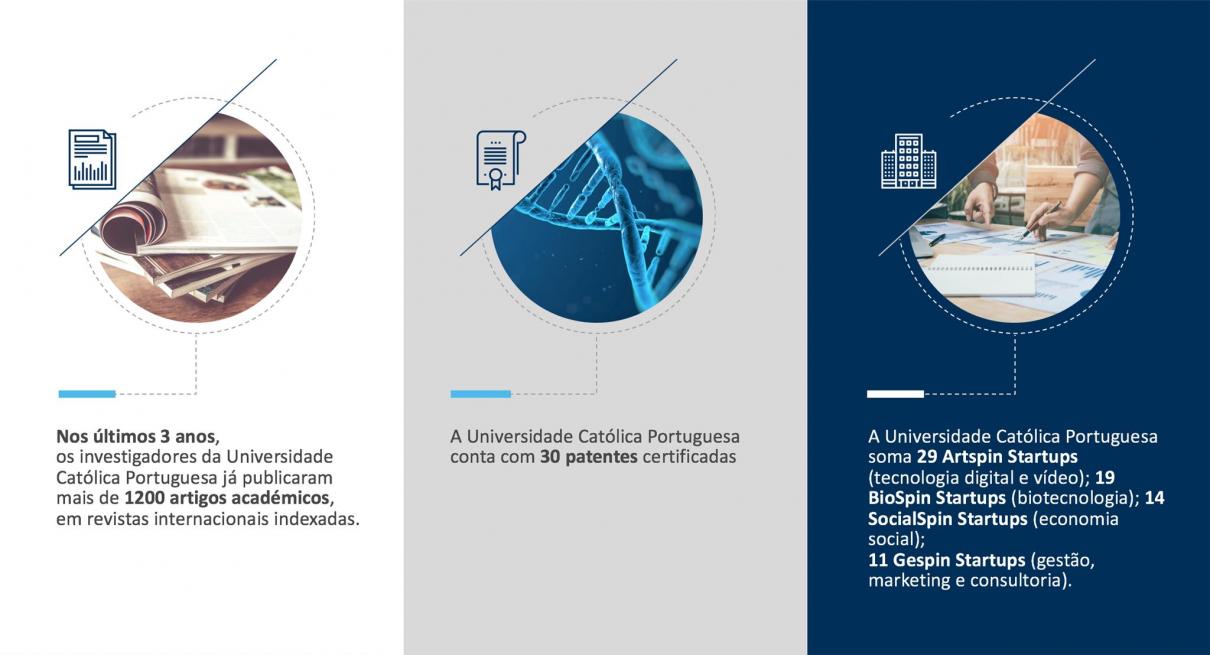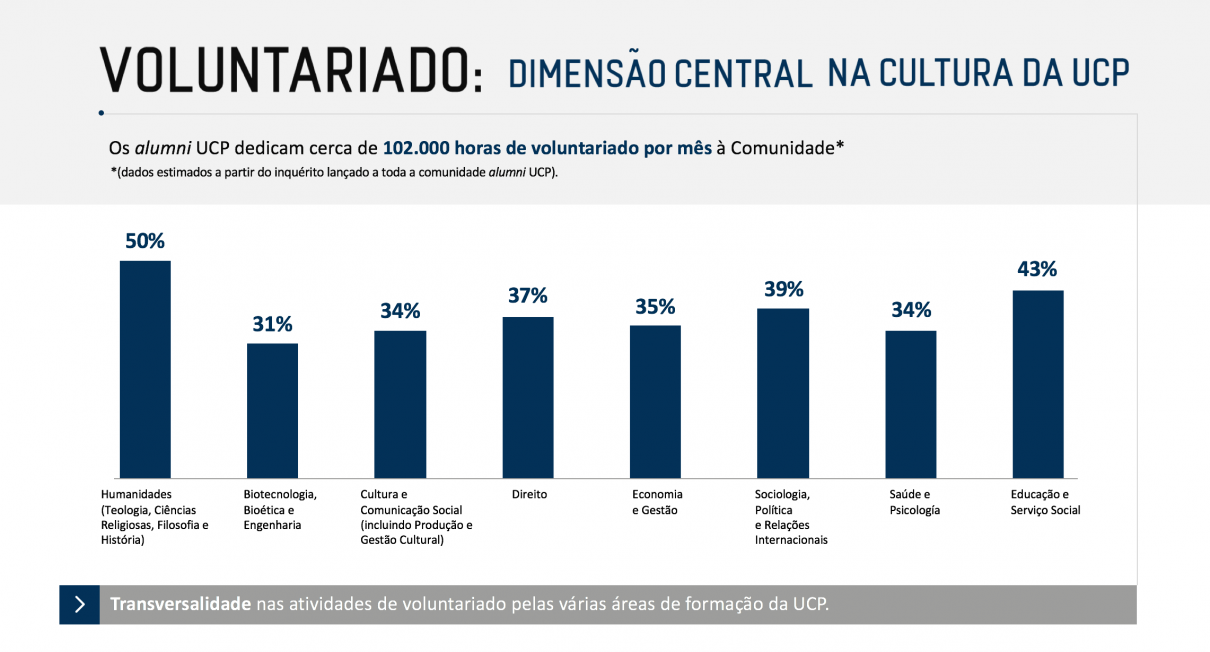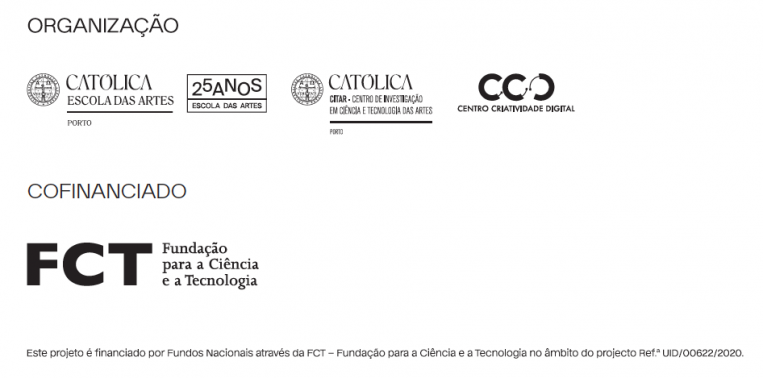The Católica and Science: The Universe of Research
Why celebrate Science?
In the Porto Regional Centre, research has seven research centres and more than 415 teachers and researchers in the areas of Biotechnology, Arts, Law, Economics, Management, Psychology, Education, Health Sciences and Theology. This multidisciplinarity, which is so characteristic of the Catholic University of Lisbon, gives body to research that is increasingly ambitious and has an immense impact on society.
Research at CRP is attentive not only to the frontiers of knowledge, but also to its ethical and social implications. Professors, researchers and students work with and for society, from the individual citizen, to the industrial and business partner, sometimes crossing the barriers of disciplinary areas. And there are many research projects signed by the research centres and faculties of the Porto Regional Centre. On this World Science Day, celebrated on 24 November, we share examples of some of our research projects that have impacted society and contribute to its progress.
Art, heritage and climate change
How can the problem of Climate Change be tackled through art and heritage? The project is called "Heritage, art, creation for climate change - living the city: catalyzing spaces for learning, creation and action towards climate change" (HAC4-CG) and aims to involve the community in the problem of climate change. Focused on the city of Porto, the project has three lines of research: citizen involvement in heritage protection; citizen involvement through artistic creation and the role of local governance, institutions and communities in mitigation and adaptation to climate change. The city of Porto is thus the case study for an approach to a global problem.
Led by the Centre for Research in Science and Technology of the Arts (CITAR), of the School of Arts, the project responds to the mission of Horizon Europe Climate Change, including Societal Transformations. This interdisciplinary project involves partner research units - such as the Centre for Studies in Management and Economics (CEGE), the Centre for Biotechnology and Fine Chemistry (CBQF), the Centre for Interdisciplinary Research in Health (CIIS) and the Research Centre for Human Development (CEDH) -, which allows a greater scope and, therefore, greater impact.
Eduarda Vieira, lecturer and researcher from the School of Arts and project coordinator, explains that "the expected impact includes the increase of competitiveness and internationalisation of the region, the promotion of green tourism, the creation of specific networks of creative industries, the protection of heritage through the application of Artificial Intelligence to the monitoring of heritage in public spaces and the use of nanotechnologies for its maintenance, the creation of an observatory of rehabilitation practices in the city and associated dynamic phenomena (food consumption among others), and also the creation of sustainable policy recommendations directed to regional authorities aimed at regulating some of the current economic drivers such as mass tourism and promotion of the city and urban communities."
"Drawing inspiration from nature is key"
Did you know that the mucus secreted by coastal fishes of Macao and Portugal plays various ecological and physiological roles? The project, developed by the Biotechnology and Fine Chemistry Centre of the School of Biotechnology, is called "Bioactive properties of external mucus isolated from coastal fish of Macao and Portugal" (FISHMUC) and aims to explore the functions, mechanisms of action and bioactive properties of mucus secreted by coastal fishes of Macao and Portugal.
"As part of the search for sustainable solutions to our problems, such as those that compromise our health, taking inspiration from nature is fundamental. In this sense, marine biomes can offer us a wide range of compounds with beneficial properties in our body, which are known as bioactive compounds," explains Ezequiel Coscueta, project researcher. Manuela Pintado, María Emilia Brassesco and Marta Cunha, CBQF researchers, are also part of the FISHMUC research team.
The project combines the expertise in fish physiology and ecology of the teams from the Institute of Science and Environment, University of Saint Joseph - Macau, and MARE - Centre for Marine and Environmental Sciences, ISPA - University Institute of Psychological, Social and Life Sciences, with the experience in extraction, isolation and bioactive testing of natural compounds of the CBQF team. The study will cover different fish species, geographical regions and habitats and will test various bioactive properties with the aim of increasing the potential for identifying molecules of interest.
Research in Law: analysing the past and projecting the future
"Creativity, innovation and flexibility are important features in any area of research": these words are from Conceição Cunha, researcher at the Católica Research Centre for the Future of Law of the Faculty of Law - Porto School.
The project is called Hands-UP and intended to respond to the challenges of demystifying and clarifying the concept of corporal punishment, and its physical and psychological consequences, promoting the adoption of positive disciplinary practices.
Conceição Cunha, explains that in Hands-Up "the analysis of old customs and prejudices about the education of children allowed us to understand the gravity of the "escalation of violence" to which many are subjected, as well as the social tolerance that has allowed this situation to be perpetuated."
"To try to solve this problem, an interdisciplinary study was necessary, in which Law and Psychology went "hand in hand", proposing different ways of educating, which implies the education of the parents and other educators, as well as new forms of legal intervention, not always necessarily going through criminal intervention (which should be maintained as ultima ratio), but requiring such intervention in the most serious situations and where other forms of intervention (through the Law for the Protection of Children and Young People in Danger) are insufficient", he added. Because, of course, "in the foreground should always be the interests of the child."
The project included the promotion of training in "positive discipline" for parents and other educators, community awareness campaigns and training sessions on child abuse for health, education and justice professionals.
The Regulatory State in Portugal: a "grey, open sky
"The Regulatory State in Portugal: Evolution and Performance" is the name of the new study of the Francisco Manuel dos Santos Foundation (FFMS) coordinated by Ana Lourenço, lecturer and researcher of the Católica Porto Business School (CPBS), which aims to analyse the independence of the regulatory bodies in Portugal and the impact of the creation of the Competition, Regulation and Supervision Court. The study, conducted under the scope of the Centre for Studies in Management and Applied Economics (CEGEA), also had the collaboration of a set of CPBS' teachers, namely: Ricardo Gonçalves and Vasco Rodrigues (authors); Filipa Mota, Mariana Cunha, Rafael Dias and Sandra Coelho (collaborators).
The study analyses the functioning, independence and politicisation of the regulatory bodies in the performance of essential functions delegated by the State, namely the supervision of economic sectors such as energy and communications, and the guarantee of competition.
The starting point were some very concrete questions: Did the approval of the Framework Law for Regulatory Authorities, in 2013, effectively lead to greater independence of Portuguese regulators? What assessment can be made of the creation of the Competition, Regulation and Supervision Court? Has its constitution led to an increase in the speed, efficiency and quality of justice? And the answer to these and other questions came through the evaluation of the independence of three regulatory bodies: the Energy Services Regulatory Authority (ERSE), the Competition Authority (PCA) and the National Communications Authority (ANACOM).
"This is the first study that analyses what has changed in the Regulatory State in Portugal after the approval of the Framework Law of the Regulatory Entities and the creation of the Competition, Regulation and Supervision Court. In conclusion, we are left with the image of a "grey sky, with openings", says Ana Lourenço. The researcher also adds that "it would be very good if other teams, using the same models, would extend the analysis to other regulatory bodies in Portugal".
The effect of mobile phone games on anxiety
GAIN or Games for Anxiety Inquired through Neuroscience consists of a research project of the Human Neurobehavioral Laboratory (HNL), which aims to study the effect of mobile phone games on anxiety and neurocognitive functions.
Patrícia Oliveira-Silva, director of the HNL at the Faculty of Education and Psychology, explains that "gamified" experiences of neuroscience have been adapted with commercial games developed to reduce anxiety or to enhance attention. In this way, it is possible to validate their impact and effectiveness on brain functioning. The director of the HNL also explains that this is the approach adopted because "it would not be possible to use more traditional research methods."
This project is based on a partnership with several companies, which represents a new innovation engine for the academy. It is HNL's concern that the research carried out has a strong adherence to reality, because "only in this way can we respond to society's problems."
Software and wound treatment
The main purpose of the ClinicalWoundSupport project of the Interdisciplinary Health Research Centre of the Institute of Health Sciences - Porto is to research, develop and validate a management and clinical decision/action support solution for wound monitoring and treatment. In the initial phase of the project, particular attention will be paid to the state of the art and to identifying the needs of those involved in the process in order to define the solution requirements. Subsequently, the different functionalities will be developed, such as a tool for capturing images of wounds and dressings in order to streamline the process of wound registration, algorithms will be developed for the semi-automatic determination of wound properties, namely the different types of tissue, and decision trees will be built to support the monitoring and treatment of wounds and systems for the creation of alerts based on the previous information.
The final software-based solution targets two types of users: on the one hand a mobile application for wound care providers, able to capture the wound image, integrate differentiated clinical information about the wound, as well as support the selection of the appropriate therapeutic intervention; and on the other hand a web platform for healthcare facility managers, responsible for integrating the acquired data in terms of wound evolution according to the implemented therapeutic interventions, to enable the identification of the most promising options in terms of effectiveness and management costs.
"The automatic acquisition of information, the accuracy and security of the data collected are three fundamental elements for the safety and quality of the care provided," explains Paulo Alves, director of the Institute of Health Sciences - Porto and researcher at the Centre for Interdisciplinary Research in Health. "It also allows monitoring the evolution of healing and receiving recommendations for the optimisation of care," he adds.
"Our research is characterised by its attentive look at what is happening around us, in areas as diverse as the social surroundings, the business sector or environmental issues, and is projected at an international level, where we have been having a growing impact.", says Célia Manaia, Vice President for Research and Internationalisation at Católica Católica in Porto. "This is a way of being that influences the way we inspire our students to have a critical eye and willingness to induce change," she adds.
After all, why celebrate science at Católica? Because Science is one of the pillars of the Universidade Católica Portuguesa, as an integral part of its mission to promote quality academic training and the cultivation of science, research and innovation for the common good.


